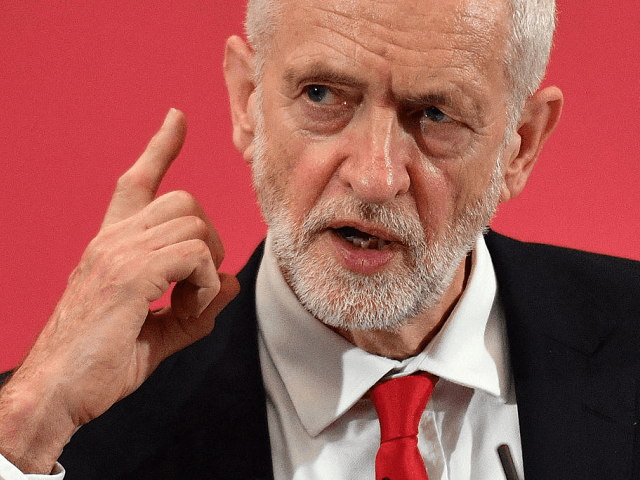“Wouldn’t it be worth five years of Labour lunacy just to give British conservatism the kick up the arse it needs?” a correspondent asks me.
I know that many of us have harboured similar mischievous thoughts from time to time.
Part of me just longs to see all those earnest Momentum kids who think the only problem with communism is that it hasn’t been tried properly yet suddenly reduced by Comrade McDonnell’s economic policies to eating their family cat.
But the price we’d pay for such merriment, unfortunately, is that whatever new conservative movement emerged from the ruins would be building on rubble and ashes: five years of Labour would simply destroy Britain.
Take Corbyn’s energy and environment policies, which have been leaked to the press.
Here’s the Telegraph‘s take:
Jeremy Corbyn has drawn up plans to take control of Britain’s energy networks in a multi-billion pound power-grab modelled on the nationalisation of Northern Rock.
A leaked Labour party document has revealed plans for a swift and sweeping renationalisation of the country’s £62bn energy networks at a price decided by Parliament.
and
Under the plans the energy companies will fall under the control of a newly formed public body, the National Energy Agency. The quango will control the energy system while operating the high voltage wires. It will also oversee a matrix of so-called “regional energy agencies” that will advance Labour’s plans to tackle climate change.
The agencies will be tasked with sourcing low carbon or renewable sources for 60pc of all energy use by 2030. They will also oversee the rollout of electric vehicle charging networks and new energy storage projects across the country.
Like John Constable at the Global Warming Policy Foundation, I have little sympathy for the big energy companies threatened with nationalisation – nor, frankly, with their shareholders.
As Constable points out the UK energy industry is not about the creation of value but is essentially just a form of subsidy farming.
The big energy firms could have resisted. They could have said: “Look. Our job is to generate the power needed to keep the lights on in Britain as cheaply and efficiently as possible. Leave us out of your green politicking.”
But the easy money from rising prices and growing subsidies was just too tempting. Big energy colluded with the government by pretending that rising energy prices had nothing to do with green levies and climate targets. When everyone finally wakes up to the degree to which their energy bills have been artificially inflated by climate change nonsense, the energy companies are going to be even less popular than they are already.
According to Constable:
It is obvious that energy and climate policies already accounted for a large a fraction of the price in 2014, prices being 17% higher than they would have been in the absence of policies. By 2020 policies were predicted to make prices 37% higher, and 41% higher in 2030.
And that’s just on the current trajectory. It doesn’t require much imagination to appreciate how much more energy bills will soar if Labour gets in and starts erecting still more bat-chomping, bird-slicing eco crucifixes as part of its renewables/low carbon “60pc of all energy use by 2030” target.
Before we start getting too cross about Labour’s watermelon lunacy, though, let’s remind ourselves which party has been in charge of Britain’s energy policy since 2010. The Conservatives.
The Conservatives, in other words, have had nearly ten years in office to demonstrate that on energy they can be more fiscally responsible, consumer-friendly and evidence-driven than its left wing/green opponents.
Delingpole: Corbyn’s Red-Green Guards Prepare for Government Under Banners of Mao and Stalin https://t.co/SyVSm5lO8e
— Breitbart London (@BreitbartLondon) May 2, 2019
Instead, they have bought wholesale into the anti-capitalist, anti-market, anti-science, anti-consumer, anti-freedom green agenda – killing through overregulation the nascent UK fracking industry, pouring more taxpayer subsidies into crony capitalist boondoggles like solar energy and offshore wind.
There are a few politicians who totally get this – from The Brexit Party’s Nigel Farage and UKIP’s Gerard Batten to, in the Conservatives, Liz Truss, Priti Patel, Owen Paterson and Jacob Rees-Mogg (whom I interviewed this week for Breitbart – watch this space!).
I hope these are the kind of people who are in office once the current storm afflicting British politics has blown over.
And let us pray that when that moment comes, we won’t have had to endure an interregnum by Jeremy Corbyn and his watermelon loons beforehand. The birds and the bats and the British countryside, not to mention the UK economy, would never forgive us.

COMMENTS
Please let us know if you're having issues with commenting.